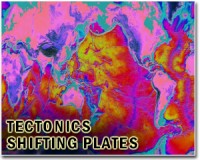 |
Paris (AFP) April 13, 2011 Japan's seismologists were so entrenched in outdated beliefs about seismic hazard that they became blinkered to the risk of the March 11 mega-quake, a commentary in a top science journal charged on Wednesday. Writing in the journal Nature, Robert Geller, an American who is professor of seismology at the University of Tokyo, said Japanese government scientists had become fixated by the risk of a big quake on Japan's southern Pacific coast. This had skewed their view of the risks for the country's northeast, where the 9.0-magnitude quake and tsunami left more than 26,500 people dead or missing, he said. Geller pointed the finger at a belief, entrenched for decades, that Japan faces imminent risks of a huge earthquake in a plate boundary off the southern coasts of Honshu and Shikoku. Government-made hazard maps of the Tokai, Tonankai and Nankai "earthquake zones" are hugely promoted in public awareness campaigns and have gained the status of holy writ, he said. But, said Geller, these maps are based on two assumptions, the "characteristic earthquake" and "seismic gap" theories, which date from the 1960s and 70s and have not been supported by evidence. "This misleads the public into believing that the clock is ticking down inexorably on a magnitude-eight earthquake that is certain to strike the Tokai district in the near future," he said. Geller said that since 1975, no large earthquake had occurred in any of the three zones billed by government scientists as the country's most hazardous regions. In contrast, all earthquakes that have caused 10 or more fatalities in Japan since 1979 have occurred in places that were categorised as being of relatively low probability, he said. Had the scientists delved into historical records showing that quake-generated tsunamis had repeatedly struck northeastern Japan over past centuries, the March 11 thrust could have been "'foreseen', in a general way," argued Geller. Its timing and location would not have been known, but at least its potential force could have been factored into the design of the Fukushima Daiichi nuclear power plant, he said. Geller said establishment thinking and scientific complacency had been moulded by a 1978 law, the Large-Scale Earthquake Countermeasures Act (LECA). This requires the Japan Meteorological Agency (JMA) to operate an alert system based on the assumption that early warning can be given of a Tokai quake. "It is time to tell the public frankly that earthquakes cannot be predicted, to scrap the Tokai prediction system and to repeal the LECA," said Geller. "All of Japan is at risk from earthquakes, and the present state of seismological science does not allow us to reliably differentiate the risk level in particular geographic areas."
Share This Article With Planet Earth
Related Links Tectonic Science and News
 Climate can drive seismic shifts: study
Climate can drive seismic shifts: studySydney (AFP) April 13, 2011 Scientists have for the first time shown a link between intensifying climate events and tectonic plate movement in findings that could provide a valuable insight into why huge tremors occur. Understanding why plates change direction and speed is key to unlocking huge seismic events such as last month's Japan earthquake, which shifted the Earth's axis by several inches, or February's New Zeal ... read more |
|
| The content herein, unless otherwise known to be public domain, are Copyright 1995-2010 - SpaceDaily. AFP and UPI Wire Stories are copyright Agence France-Presse and United Press International. ESA Portal Reports are copyright European Space Agency. All NASA sourced material is public domain. Additional copyrights may apply in whole or part to other bona fide parties. Advertising does not imply endorsement,agreement or approval of any opinions, statements or information provided by SpaceDaily on any Web page published or hosted by SpaceDaily. Privacy Statement |